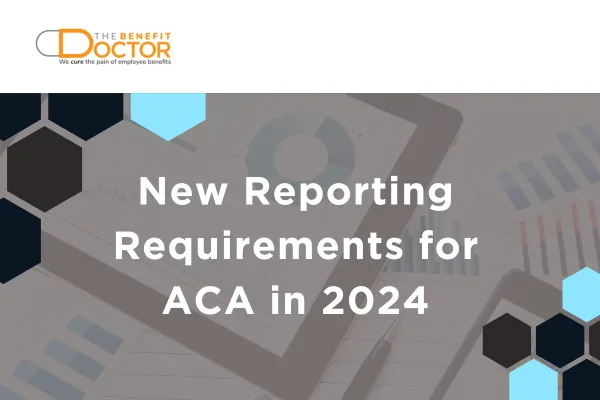A lot.
How many times have you seen someone go through a major health event, with "good insurance" and had to pay a big chunk of money out of their own pocket. Then they still get more bills in the mail months (maybe even years) later.
Why?
Shouldn't insurance cover everything? Why even have it in the first place?
We believe that it all comes down to two things.
First, how your benefits get built matters. It directly impacts you and your team, not just with the monthly costs, but when you actually have to use the benefits.
Second, you take this extremely expensive and complicated thing, put it into a few pages of a PDF or website, then expect people to make a wise choice on what plan is best for their situation, to find the best care for the lowest cost, and to top it all off expect them to keep everything "in network".
Because they were built to
Help them find the best doctor for what they need
Give them help covering out of pocket costs when health events happen
Have a dis-appearing deductible
Make sure they could still pay their regular bills when a major health event happens
Not Only Is It POSSIBLE.
It's Being Done.
A lot.
How many times have you seen someone go through a major health event, with "good insurance" and had to pay a big chunk of money out of their own pocket. Then they still get more bills in the mail months (maybe even years) later.
Why?
Shouldn't insurance cover everything?
Why even have it in the first place?
We believe that it all comes down to two things.
First, how your benefits get built matters.
It directly impacts you and your team, not just with the monthly costs, but when you actually have to use the benefits.
Second, you take this extremely expensive and complicated thing, put it into a few pages of a PDF or website, then expect people to make a wise choice on what plan is best for their situation, to find the best care for the lowest cost, and to top it all off expect them to keep everything "in network".
Because they were built to
Help them find the best doctor for what they need
Give them help covering out of pocket costs when health events happen
Have a dis-appearing deductible
Make sure they could still pay their regular bills when a major health event happens
YOU DESERVE THE BEST...
THAT'S WHY OUR PROCESS IS DESIGNED WITH YOU IN MIND.
Stories & More

New ACA Reporting Requirements for 2024
“Who needs to do this reporting? Employers with self-insured health plans and Applicable Large Employers (ALE's)”
Important Dates and Requirements for ACA Reporting in 2024
Hey there, do you know what new ACA reporting is? It's a fancy way of saying that some big companies have to share information about the health plans they offer to their employees. This is important because it helps make sure that everyone has access to the healthcare they need.
Now, let's talk about some important dates for 2024. If you're a company that has to do ACA reporting, you should know these dates by heart.
February 28, 2024: Paper IRS returns for 2023 must be filed by this date. Reporting entities can file up to 10 returns on paper under the new filing threshold.
March 1, 2024: Individual statements for 2023 must be furnished by this date. An alternative method of furnishing Forms 1095-B is available.
April 1, 2024: Electronic IRS returns for 2023 must be filed by this date. Most employers must file electronically beginning in 2024.
But wait, there's more! Starting in 2024, companies that file at least 10 returns during the calendar year must file electronically. And if they don't, they might have to pay some penalties. Yikes!
Now, let's talk about who needs to do this reporting. There are two main groups:
Employers with self-insured health plans (Section 6055 reporting)
Applicable large employers (ALEs) with either fully insured or self-insured health plans (Section 6056 reporting) ALEs are companies with 50 or more full-time employees (including full-time equivalent employees) during the preceding calendar year.
Note that ALEs with self-funded plans are required to comply with both reporting obligations. To make things a little easier, the IRS allows ALEs with self-insured plans to use a single combined form to report the information required under both Sections 6055 and 6056.
So, remember these important dates and requirements for ACA reporting in 2024.
Want the full bulletin? Click Here
About Emily Evans

Emily has been in the benefits industry since Aug. 2011. Her journey started as an independent agent, but in 2019 she realized that her clients needed more from her.
She created her brokerage company Emily Evans Consulting LLC at that time. The struggles of seeing her clients get the short end of the stick time after time from the large insurance companies made her continue looking for a better solution.
In 2021 Emily banded together with a group of likeminded individuals to help start The Benefit Doctor. Our unique way of building, educating, enrolling, and servicing clients is continually reviewed to ensure the best partners for our clients.
About Emily Evans
Emily has been in the benefits industry since Aug. 2011. Her journey started as an independent agent, but in 2019 she realized that her clients needed more from her.
She created her brokerage company Emily Evans Consulting LLC at that time. The struggles of seeing her clients get the short end of the stick time after time from the large insurance companies made her continue looking for a better solution.
In 2021 Emily banded together with a group of likeminded individuals to help start The Benefit Doctor. Our unique way of building, educating, enrolling, and servicing clients is continually reviewed to ensure the best partners for our clients.
We service clients nationwide with our team of Benefit Doctors.
Emily specializes in the states of Arizona, Florida, and Texas. (All the places where her family lives. 😁)
Her focus is on clients from 10 employees up to 500 employees.



